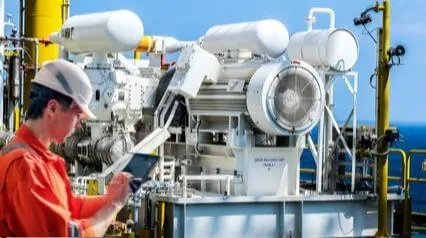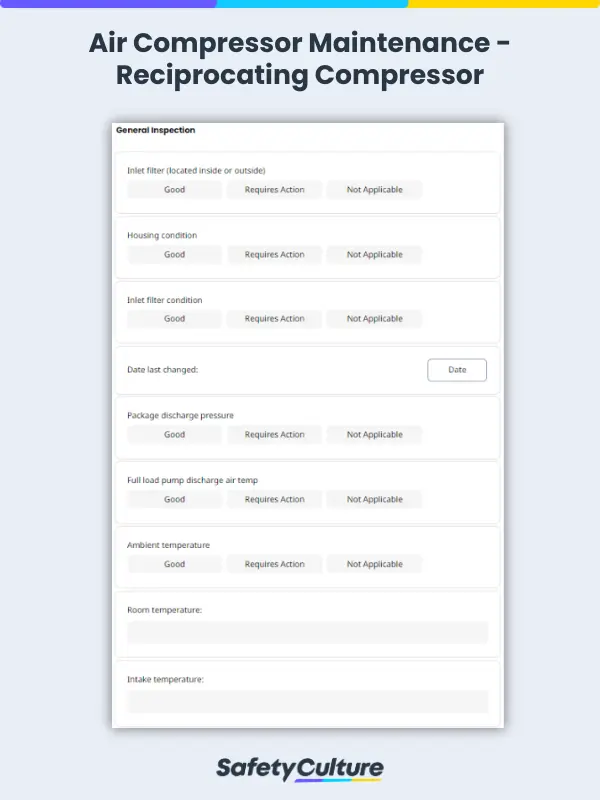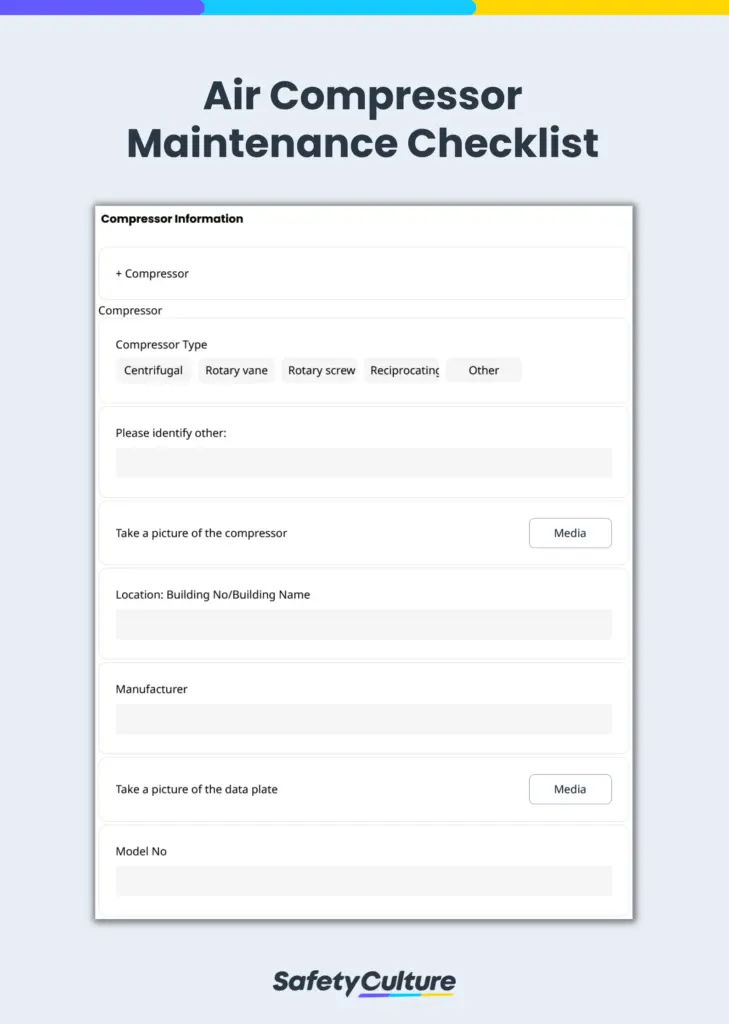What is Air Compressor Maintenance?
Air compressor maintenance is the routine servicing of industrial air compressors. Using a digital checklist, engineers and safety officers conduct air compressor preventive maintenance on a daily, weekly, monthly, and yearly basis to ensure the optimal operation of air compressors.
Why Conduct Air Compressor Maintenance?
All air compressors need preventative maintenance to facilitate efficient energy distribution. Failing to conduct air compressor maintenance can result in unusable equipment and unnecessary delays. Additionally, faulty air compressors are not safe to use and may even cause harm or injury to workers.
1. Maintain efficiency
Air compressors are expected to operate at optimum levels within the expected run time. Scheduled air compressor maintenance by engineers can help catch issues that lead to inefficiencies, such as prolonged run time or lower compressor capacity caused by possible leakage from safety relief valves or suction valves.
2. Ensure safety
Depending on the air compressor type, unchecked air compressors can have condensed water buildup which can lead to internal corrosion and cause equipment to weaken and explode unexpectedly. Overheating of air compressors can be caused by clogged components or lack of ventilation. Conducting air compressor preventive maintenance checks can help safety officers proactively catch problems to avoid compromising the safety of workers.
3. Ensure compliance
International standards such as ISO 45001 for occupational health and safety, and OSHA standards for equipment require maintenance to ensure the safety of employees. Conducting regular preventive equipment maintenance inspections of air compressors and having proof through recordkeeping can help organizations stay compliant with international safety standards.
Perform maintenance inspections with this Air Compressor Maintenance Checklist. Download and customize for free:
3 Air Compressor Maintenance Tips
Conducting air compressor maintenance and audits, however, have some challenges, and not doing them consistently will lead to costly breakdowns. The reliability of these tasks usually falls on the safety officers and technicians. Perform routine air compressor preventive maintenance or necessary predictive maintenance by following the tips below.
1. Read the air compressor manual
It’s important to read the air compressor manual first before doing anything to the machinery because it may have additional tips that can help solve the issue and can guide the maintenance process. Even if the air compressor will be serviced by someone else, it still helps to browse through the manual to get the most use out of the air compressor and retain its warranty.
2. Check and change the oil
For air compressors that use oil, make sure that there’s adequate lubrication before operating the device. This has to be performed daily since “fresh” oil is needed for the air compressor to work. Start by turning off the air compressor. Next, remove the fill cap and the drain plug. Place a container underneath to drain the oil. Attach the new drain plug and add in the new oil. Finally, attach the new fill cap.
3. Check and change the air filter
A clean air filter is crucial to the functioning of the air compressor e.g. a clean air conditioning system. While the air filter is designed to trap and hold impurities, if not inspected, it could cause the air compressor to produce less air, and the compressed air that it does produce may even be contaminated. To make sure the filtration process is clean, allow the compressor to get cooled off, check the air filter, loosen the top screw, and remove the filter element. If it is full of dirt, put in a new one.
Other air compressor routine maintenance tips to follow:
- Clean intake vents and heat exchangers
- Drain tanks of moisture or condensate
- Inspect the safety shutdown system
- Check belts, hoses, and bolts
- Condition monitoring and set up regular preventive maintenance checks



